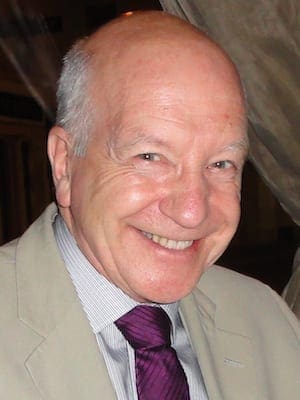I have grown tired of the word “vision.”
Whether it’s used in a personal development seminar, a question about the future of the organization, or in the church community to help us be more forward or outward or upward looking, the word wearies me.
It seems to suggest that the way things are is never enough.
It invites, or rather demands, that I look for ways to make things different, to see things in a new way.
It is a word that seems to work best in a place where there is already discontent, where the status quo is not enough.
I know “Where there is no vision, the people perish” (Proverbs 29:18) and all that.
Leaving aside the risks of simply yanking those words from their biblical context, there is nothing intrinsically good about a vision.
It depends on whose vision it is, as well as the content and motivation, the energy and resources, and even the level of achievability implied in the vision statements.
Oh yes, we need vision, so I’m not weary of those inner longings of the heart and spiritual flights of imagination that take us to possible new places.
I’m not tired of the hard work of thinking, praying, conversing, arguing, planning and formulating new ideas, which push us toward a new way of seeing the world, creating ideas that inspire, energize and give cohesion to communities hungering and thirsting after righteousness.
Such efforts give first place to Jesus in whom the fullness of God dwells (Colossians 2:19), through whom God seeks the reconciliation of all things (Colossians 1:20; 2 Corinthians 5:18), whose crucifixion is our call to carry the cross, whose “Follow me” remains our categorical imperative, and whose resurrection bursts the bounds of possibility in all our vision making.
He is the one who is ahead of us, who is the source and origin of every transformative vision we can think of, and who urges us beyond every vision statement we can formulate.
It’s the devaluing of the word “vision” that makes me weary. We use the word, even in our churches, for the latest good ideas, the currently fashionable ways of doing things, or to claim the high ground for our own plans and agendas.
Unless our visions aspire toward God’s great vision of a healed creation, a reconciled universe, a new reality defined by “shalom” and pervaded by a love deeper than the abysses of our own dreaming and more durable than our own hopes, then they will run out of fuel before they even reach the edges of what we hope for.
Vision is related to a theology of hope. It is what happens when we think with God on the horizon.
Vision is such impatience with the status quo that nothing less than faith in the one who says, “Behold I make all things new” (Revelation 21:5) will come within range of our longed for possibilities.
For me, the ongoing conflict in Gaza has been an exercise in both realism and hopefulness.
Realism because I’ve no idea how to prevent that vicious, lethal cycle of hate from exploding again.
Hopefulness because I refuse, as a Christian steadfastly should refuse, to cede the field to the powers that be, whoever they are.
Against the benchmarks of ancient hatred, political determinism, iron-clad vested interests, idolatry of the bomb, gun, rocket and tank, discourse that sanitizes evil with the vocabulary of collateral damage, human shields and terrorist madness, I do not merely rail, I pray.
And I envision a better future—not within the limited scale of my own thinking, hoping and longing, but within the great vision of the gospel of peace and reconciliation.
I dare to believe that:
− The Holy Spirit is God’s self-gift to the world, moving with renewing and redeeming power within the structures of what we call reality
− Jesus Christ embodies the love and mercy of God taking on the worst the world can do, and emerging through suffering to resurrection that contradicts all that our human worst can do
− God’s purposes for his creation are purposes that are ultimately, finally and irrevocably redemptive
Maybe, just maybe, in addition to the practical things we desperately try to do—from buying Palestinian olive oil to speaking with our Jewish friends; from charitable aid to making sure we are informed enough to take on the nonsense and sometimes dangerous nonsense spoken around us—being a faithful follower of the crucified risen Jesus means being realistic about the worlds we live in.
This should offer us hope when we remember that in this world crucifixion was not final and resurrection realized the impossible possibility that death and the dealers of death don’t have the last word.
 James Gordon is part-time minister of Montrose Baptist Church in Angus, Scotland, and the former principal of the Scottish Baptist College. He continues to lecture there in church history and systematic theology. A longer version of this article first appeared on his blog, Living Wittily, and is used with permission.
James Gordon is part-time minister of Montrose Baptist Church in Angus, Scotland, and the former principal of the Scottish Baptist College. He continues to lecture there in church history and systematic theology. A longer version of this article first appeared on his blog, Living Wittily, and is used with permission.
Part-time minister of Montrose Baptist Church in Angus, Scotland, and the former principal of the Scottish Baptist College. He is on the advisory board of the Centre for Ministry Studies, University of Aberdeen, and is honorary lecturer in the School of Divinity, History and Philosophy.

